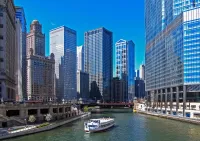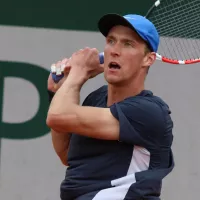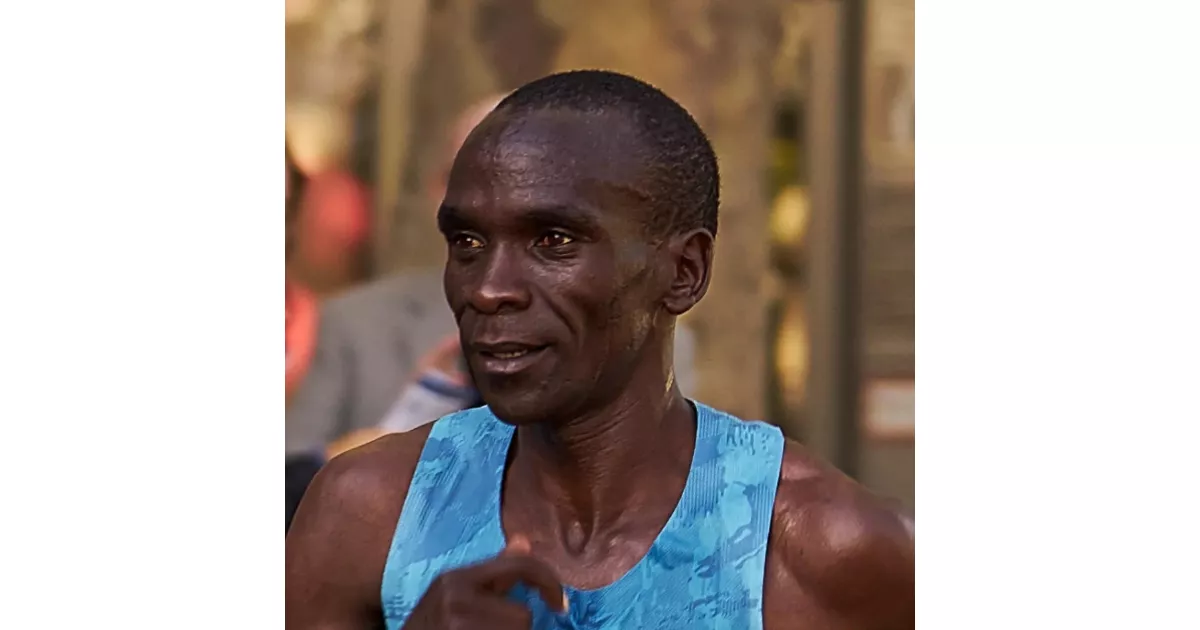Eliud Kipchoge is a celebrated Kenyan long-distance runner, renowned for his dominance in the marathon. He is a two-time Olympic marathon champion (2016 and 2020) and held the world record in the marathon from 2018 to 2023. Notably, he has achieved 3 of the 10 fastest marathon times ever recorded. While previously specializing in the 5000 meters, Kipchoge's focus and success have solidified his place as one of the greatest marathon runners in history.
1960: Reference to Abebe Bikila's 1960 Olympic win
In August 2021, after Kipchoge won gold at the Tokyo Olympics, it was mentioned that he became only the third person to successfully defend their gold medal in the men's marathon, after Abebe Bikila in 1960.
1964: Reference to Abebe Bikila's 1964 Olympic win
In August 2021, after Kipchoge won gold at the Tokyo Olympics, it was mentioned that he became only the third person to successfully defend their gold medal in the men's marathon, after Abebe Bikila in 1964.
1967: Greatest improvement in a marathon world record time since 1967
In 2018, when Kipchoge won the Berlin Marathon, it was noted that it was the greatest improvement in a marathon world record time since 1967.
1967: Greatest Improvement in World Record Time
Kipchoge's last world record run broke by 30 seconds his own 2018 world record, which was in turn a 78-second improvement over the existing best, the greatest improvement in a marathon world record time since 1967.
1972: Largest Victory Margin
The winning gap between Kipchoge and Lilesa by 70 seconds was the largest victory margin since the 1972 Olympic marathon.
1976: Reference to Waldemar Cierpinski's 1976 Olympic win
In August 2021, after Kipchoge won gold at the Tokyo Olympics, it was mentioned that he became only the third person to successfully defend their gold medal in the men's marathon, after Waldemar Cierpinski in 1976.
1980: Reference to Waldemar Cierpinski's 1980 Olympic win
In August 2021, after Kipchoge won gold at the Tokyo Olympics, it was mentioned that he became only the third person to successfully defend their gold medal in the men's marathon, after Waldemar Cierpinski in 1980.
November 1984: Kipchoge's Birth
In November 1984, Eliud Kipchoge was born in Kapsisiywa, Nandi County, Kenya.
1984: Reference to Carlos Lopes' 1984 Olympic win
In August 2021, after Kipchoge won gold at the Tokyo Olympics, it was mentioned that Kipchoge was the oldest Olympic marathon winner since Carlos Lopes won in 1984.
1993: Kipchoge's halfway split would have been a world record in the standalone half-marathon in 1993.
On September 25, Kipchoge achieved halfway in 59:51 which, being at the time, the fastest split in marathon history, would have been a world record in the standalone half-marathon in 1993.
1999: Graduation from Kaptel Secondary School
In 1999, Kipchoge graduated from Kaptel Secondary School.
2000: Fastest 5k Road Race
In 2000 Sammy Kipketer set the world's fastest time for a 5k road race.
2001: Met Trainer Patrick Sang
In 2001, at age 16, Kipchoge met his trainer Patrick Sang.
2002: Kenyan Trials Winner
In 2002, Kipchoge won the Kenyan trials for the IAAF World Cross Country Championships junior race.
2003: World Junior Record
In 2003, Kipchoge set a world junior record in the 5000 m at the Bislett Games, running a time of 12:52.61 minutes.
2003: World Championships Gold Medal
In 2003, Kipchoge won a gold medal at the 5000 m final at the World Championships in Paris.
2003: IAAF World Cross Country Championships
In 2003, Kipchoge won the junior race at the IAAF World Cross Country Championships.
2004: Athens Olympics Bronze Medal
In 2004, Kipchoge won a bronze medal at the 5000 m final at the Athens Olympics.
2004: Golden League Roma Meeting
In July 2004, Kipchoge participated in the Golden League 2004 Roma Meeting. He finished first in the 5000 m event with 12:46.53, making him the sixth-fastest ever in the event.
2006: World Indoor Championships Bronze
In 2006, Kipchoge won a bronze at the World Indoor Championships.
2007: World Championships Silver Medal
In 2007, Kipchoge secured a silver medal at the World Championships.
2008: Beijing Olympics Silver Medal
During the 2008 Olympics held in Beijing, China, Kipchoge won a silver medal in the 5000 m event.
2008: Kenyan Male Olympic Gold Medal
In 2008, Sammy Wanjiru won the Olympic marathon gold medal.
2008: ilahu Regassa Sets Course Record
In 2008, ilahu Regassa set the course record in Lille Half Marathon.
2009: Fifth Place at World Championships
In 2009, Kipchoge finished in fifth place at the World Championships in Athletics.
2010: Commonwealth Games Silver Medal
In 2010, Kipchoge took silver at the Commonwealth Games.
2010: IAAF Diamond League Win
In 2010, Kipchoge won the 5000 m Qatar Athletic Super Grand Prix in a meet record time, marking his debut on the IAAF Diamond League.
2010: Moses Mosop's Half Marathon
In 2010, Moses Mosop had a time of 59:20 in Milan.
2011: Great Edinburgh Cross Country Win
In 2011, Kipchoge won the short race at the Great Edinburgh Cross Country.
October 2012: IAAF World Half Marathon Championships
In October 2012, Kipchoge placed sixth in the IAAF World Half Marathon Championships in Kavarna, Bulgaria.
2012: Edinburgh Cross Country Third Place
In 2012, Kipchoge finished third at the Edinburgh Cross Country.
2012: Switched to Road Running
In 2012, Kipchoge transitioned to road running and achieved the second-fastest half marathon debut.
2012: World Junior Record Improved
In 2012, the world and African junior record that Kipchoge set was improved to 12:47.53 minutes by Hagos Gebrhiwet of Ethiopia.
August 2013: Half Marathon of Klagenfurt Win
In August 2013, Kipchoge won the Half Marathon of Klagenfurt.
2013: Berlin Marathon Second Place
In 2013, Kipchoge raced in the Berlin Marathon and finished second behind Wilson Kipsang, who set a new marathon world record. Kipchoge set the fifth-fastest time in history.
2013: Hamburg Marathon Victory
In 2013, Kipchoge won the Hamburg Marathon in a course record time.
2013: Wilson Kipsang finished third at the Berlin Marathon
In 2018, Wilson Kipsang of Kenya, the world record holder from 2013, finished third at the Berlin Marathon with a time of 2:06:48.
2014: Dennis Kimetto's Berlin Marathon record
In 2014, Dennis Kimetto set a world record at the Berlin Marathon with a time of 2:02:57, this record was broken by Kipchoge in 2018.
2014: Chicago Marathon Victory
In 2014, Kipchoge's first World Marathon Major victory came at the Chicago Marathon.
2015: London and Berlin Marathon Wins
In 2015, Kipchoge won the London Marathon and then the Berlin Marathon despite a shoe malfunction.
2015: Kipchoge's previous Berlin Marathon win in 2015
In 2023, Kipchoge won the race for a record fifth time, having already won in 2015.
August 2016: Rio Summer Olympics Gold Medal
In August 2016, Kipchoge won a gold medal in the marathon at the Rio Summer Olympics.
November 2016: Airtel Delhi Half Marathon Win
In November 2016, Kipchoge won the Airtel Delhi Half Marathon.
2016: Olympic Marathon Champion
In 2016, Eliud Kipchoge became the Olympic marathon champion.
2016: Keninisa Bekele Failed to Finish
In 2016, Kenenisa Bekele failed to finish.
2016: Series Champion
In 2016, Kipchoge became series champion.
2016: Kipchoge beats his own 2016 London Marathon best.
In 2019, Kipchoge beat his own 2016 London Marathon best by 28 seconds, setting a new course record.
2017: Series Champion
In 2017, Kipchoge became series champion again.
2017: Kipchoge's previous Berlin Marathon win in 2017
In 2023, Kipchoge won the race for a record fifth time, having already won in 2017.
2017: Berlin Marathon Win
On September 2017, Kipchoge won the Berlin Marathon.
2018: Kipchoge named IAAF World Athlete of the Year
Following his outstanding performances in the 2018 season, Eliud Kipchoge was named the IAAF World Athlete of the Year, marking a high point in his career.
2018: Marathon World Record Holder
In 2018, Eliud Kipchoge became the world record holder in the marathon.
2018: Series Champion
In 2018, Kipchoge continued as series champion.
2018: Berlin Marathon World Record
In 2018, Kipchoge set a new marathon world record at the Berlin Marathon, clocking 2:01:39.
2018: Second fastest marathon time behind 2018 Berlin Marathon win.
In 2019, Kipchoge's London Marathon win was the second fastest marathon ever at that time, behind his 2018 Berlin Marathon win.
2018: Kipchoge's previous Berlin Marathon win in 2018
In 2023, Kipchoge won the race for a record fifth time, having already won in 2018.
2018: Kipchoge wins 2018 Berlin Marathon
On September 16, 2018, Eliud Kipchoge won the Berlin Marathon with a time of 2:01:39, setting a new world record. This broke the previous record by 1 minute and 18 seconds. He finished far ahead of the second-place runner.
2018: Kipchoge's previous world record set in 2018
On September 25, Kipchoge beat his own previous world record, which he set in 2018.
January 2019: Kipchoge named 2018 Sportsman of the Year at Kenyan Sports Personality of the Year Awards
On January 11, 2019, Eliud Kipchoge was honored as the 2018 Sportsman of the Year at the Kenyan Sports Personality of the Year Awards in Mombasa, Kenya, recognizing his achievements in athletics.
May 2019: Kipchoge announces Ineos 1:59 Challenge
In May 2019, Eliud Kipchoge announced his participation in the Ineos 1:59 Challenge, aiming to break the two-hour marathon barrier.
October 2019: Appointed Elder of the Order of the Golden Heart
In October 2019, President Uhuru Kenyatta appointed Kipchoge as Elder of the Order of the Golden Heart.
October 2019: Kipchoge breaks two-hour marathon barrier
On October 12, 2019, Eliud Kipchoge became the first person in recorded history to break the two-hour barrier for a marathon, running it in 1:59:40 in Vienna's Prater park.
October 2019: Ineos 1:59 Challenge
On October 2019, Kipchoge ran the marathon distance for the Ineos 1:59 Challenge in Vienna, achieving a time of 1:59:40.2, becoming the first person in recorded history to do a sub-two-hour marathon.
2019: Kipchoge wins 2019 London Marathon
In 2019, Eliud Kipchoge won the London Marathon with a time of 2:02:37, which was the second-fastest marathon ever at that time. He also set a new course record.
2019: Series Champion
In 2019, Kipchoge continued as series champion.
2020: Olympic Marathon Champion Again
In 2020, Eliud Kipchoge again secured the title of Olympic marathon champion.
2020: Eighth Place London Marathon
In 2020, Kipchoge finished eighth at the London Marathon.
2020: Kipchoge places 8th in 2020 London Marathon
In October 2020, Eliud Kipchoge finished 8th in the London Marathon with a time of 2:06:49, marking the lowest finish in his marathon career.
2020: Delayed 2020 Tokyo Olympic Games
In preparation for the delayed 2020 Tokyo Olympic Games, he won the NN Mission Marathon on April 18, 2021.
April 2021: Kipchoge wins NN Mission Marathon
On April 18, 2021, Eliud Kipchoge won the NN Mission Marathon in Enschede, Netherlands, with a time of 2:04:30, in preparation for the Tokyo Olympic Games.
August 2021: Kipchoge's Slowest Marathon Time
As of August 2021, Kipchoge's winning time of 2:08:44 was his slowest marathon time.
August 2021: Kipchoge wins gold at Tokyo Olympics
In August 2021, Eliud Kipchoge won the gold medal in the men's marathon at the Tokyo Olympic Games, successfully defending his title from the Rio Olympics.
2021: Kipchoge announces desire to win all six World Marathon Majors
In January 2021, Eliud Kipchoge announced his desire to win all six World Marathon Majors, demonstrating his ambition to achieve further success in his career.
2021: 2021 Tokyo Marathon was postponed
The 2021 Tokyo Marathon was postponed and took place on 6 March 2022 because of the COVID-19 pandemic.
March 2022: Kipchoge wins 2021 Tokyo Marathon
In March 2022, Eliud Kipchoge won the 2021 Tokyo Marathon, which was postponed from 2021 due to COVID-19 restrictions, with a time of 2:02:40.
March 2022: 2021 Tokyo Marathon took place on 6 March 2022
The 2021 Tokyo Marathon, officially billed as such, took place on 6 March 2022 due to postponement because of the COVID-19 pandemic.
2022: Series Champion
In 2022, Kipchoge was series champion.
2022: Kipchoge's previous Berlin Marathon win in 2022
In 2023, Kipchoge won the race for a record fifth time, having already won in 2022.
September 2023: Berlin Marathon Win
In September 2023, Kipchoge won the Berlin Marathon, marking his fifth win there.
2023: Kipchoge finishes sixth at 2023 Boston Marathon; Kipchoge wins 2023 Berlin Marathon
In 2023, Eliud Kipchoge finished sixth at the Boston Marathon due to a leg problem, marking the third defeat of his career. Later in the year, he won the Berlin Marathon for a record fifth time.
2023: World Record Broken
In 2023, Kelvin Kiptum broke Kipchoge's world record at the Chicago Marathon.
2023: Princess of Asturias Award
In 2023, Kipchoge was awarded the Princess of Asturias Award in the category "Sports".
2024: Kipchoge fails to finish 2024 Paris Olympics marathon
In 2024, Eliud Kipchoge failed to finish the marathon for the first time in his career when defending his gold medal at the Paris Olympics, citing discomfort.
2028: Kipchoge states he won't compete at 2028 Los Angeles Olympics
Following his failure to finish the 2024 Paris Olympics marathon, Kipchoge stated that he would not compete at the Los Angeles Olympics in 2028.
Mentioned in this timeline
Qatar is a country located on the Qatar Peninsula in...
China officially the People's Republic of China is an East...

A shoe is a protective and comfort-providing item of footwear...

Los Angeles is the most populous city in California and...
Kenya officially the Republic of Kenya is an East African...

Chicago is the most populous city in Illinois and the...
Trending
17 minutes ago Halys close to Dubai ATP 500 main draw after qualifier wins.
17 minutes ago Controversy Surrounds Israel: Huckabee's Remarks and US Ambassador's Claims Spark Uproar

1 hour ago England faces Sri Lanka in T20 World Cup Super 8s, weather a concern.

2 hours ago Mpetshi Perricard tries Dehaes after Planque split, Dubai & Doha comments.

2 hours ago Otto Virtanen Gears Up for Dubai 2026: Match Analysis and Fan Commentary

2 hours ago Choinski Qualifies for Doha, Faces Mensik in ATP Qatar Open 2026
Popular

Jesse Jackson is an American civil rights activist politician and...

Barack Obama the th U S President - was the...

Bernie Sanders is a prominent American politician currently serving as...

Ken Paxton is an American politician and lawyer serving as...

Michael Joseph Jackson the King of Pop was a highly...
WWE Raw a professional wrestling television program by WWE airs...
